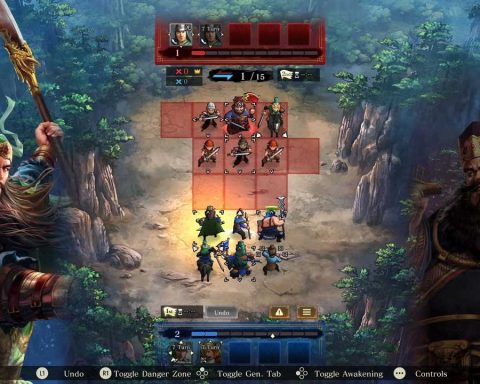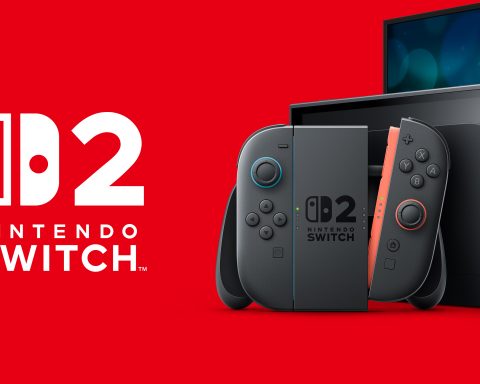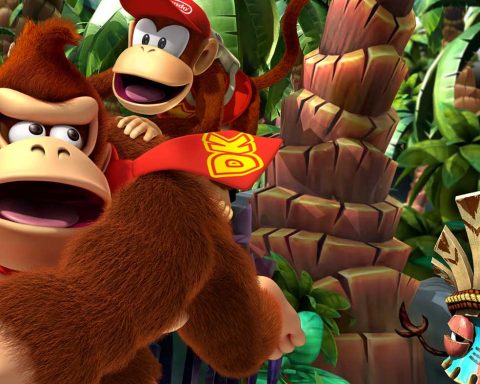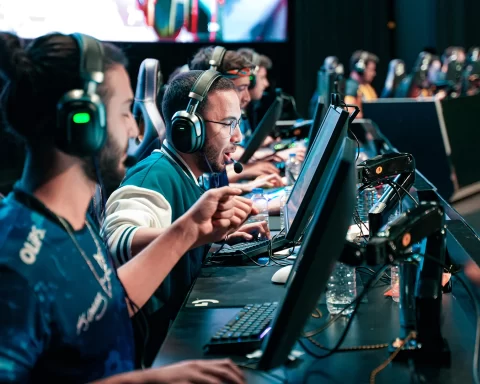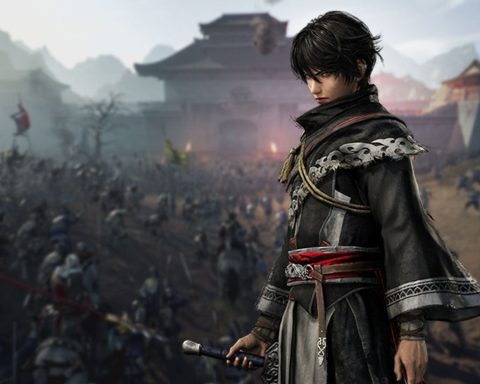 Path of Exile has really taken the PC game community by storm, and it’s still only in Beta. The work of New Zealand creatives at Grinding Gear Games have achieved positive notority from adopting a completely free-to-play model that is so fair that players want to buy the microtransactions on offer.
Path of Exile has really taken the PC game community by storm, and it’s still only in Beta. The work of New Zealand creatives at Grinding Gear Games have achieved positive notority from adopting a completely free-to-play model that is so fair that players want to buy the microtransactions on offer.
Given that microtransactions and DLC are looking more and more like the future of game development, it would be worth game developers looking at what Grinding Gear Games have done to understand that the best path to success is not in offering pay-to-win, but rather additional content that has no material impact on the game itself that players will invest in anyway because they’ve become emotionally attached to the game.
We sat down with Grinding Gear Games to chat about Path of Exile, the New Zealand development community and the best way to approach free-to-play. As with many developers from New Zealand, these guys are open and innovative, more interested in building a small studio by making great games than building a big studio and alienating some fans in the process.
Digitally Downloaded (DD): Congratulations on the massive success the beta of Path of Exile has had! What do you attribute the positive hype to?
Brian Weissman (BW): Thank you very much! We attribute the positive hype to a few key things.
Firstly, the game is great. We’re still in Open Beta, but Path of Exile plays like a finished game. We’ve been adding layers of steady polish for months now, it really shows. PoE garnered excellent reviews among people who saw it during Closed Beta, inducing a lot of people to download it as soon as it became widely available.
Secondly, the Open Beta press tour. In the week before we went to Open Beta, Chris and Jonathan traveled to California for a whirlwind press tour. In the span of just a few days, they met with dozens of prominent game journalists. These meetings produced an avalanche of positive media attention, which drew untold numbers of people to the game when the servers went live.
In addition to that, the Open Beta trailer was a big deal. A few days before PoE went to Open Beta, we released an exclusive trailer to Gametrailers.com. The trailer was excellent, garnering well over 200,000 views in just a few days. This translated to even more excitement about the game, especially when the overall views around the internet climbed to over one million.
DD: What inspired the game in the first place?
BW: Our biggest inspiration has come from our favourite games in the RPG genre over the last fifteen years. We have all played thousands of hours of RPG games, and we put many of them in our list of “the top 10 games of all time”. Path of Exile contains gameplay mechanics that should be familiar to fans of the RPG genre, and that is completely intentional. We want it to be a fun and familiar experience the moment you set foot on the beach of Wraeclast.
DD: What are your next priorities with the game?
BW: We’re actively working on polishing all of the content in PoE. Act 3 has a level of detail and artwork that surpasses that found in the previous two acts, so we’re laboring to bring everything into consistent quality. We have improvements coming to our microtransaction shop, to website-based trading, to voice acting, and to our league system. We are also laying the groundwork for what we’re calling “Act 3x”, additional content that will bring Act 3 to a fitting close.
We’re releasing weekly content patches that add new skills, unique items and bug fixes to the game. In addition, there’s substantial work being done in parallel on systems issues such as client performance, server stability and combat synchronisation.
DD: New Zealand has a thriving game development community despite the small size of the industry. How have you found the local game development environment?
BW: Most of the studios in New Zealand are working on mobile or flash games – I think we’re the only one working on a large PC game. Regardless, game development is game development. It’s a lot of fun to meet the other studios and to see what they’re working on. We have monthly game development meetups in Auckland that are really interesting to attend.

BW: Excellent question. In most cases, it seems that studios ultimately fail at this. They may set out with the goal of making their game fair, but ultimately, those who pay money get ahead. Even if players can buy benign things like speed or exp boosts, the game will ultimately move in the direction of the paying “haves” vs. the non-paying “have nots”.
We’ve completely circumvented this issue by taking an uncompromising stance since day one. In Path of Exile, we will not sell power, period. This means that is no way for a player to pay us money to gain any type of in-game advantage over another player. If you acquire great wealth and equipment in PoE, you’ve have done it through your own hard work and trading acumen. Our game is completely egalitarian, that’s what makes it fair.
What we’ve found so far is that players happily embrace the fairness. People overwhelmingly support what we’re doing, as well as our stance against selling power. I’ve read many comments about people buying from our microtransaction shop, not because they specifically want a new effect or pet, but because they want to help with our development. We’ve made a great game, with an ethical stance on monetization. So far, it’s been a winning combination.
DD: Do you see potential to take this game to other platforms beyond the PC?
BW: PoE was always designed to be a PC game, so it really wouldn’t work outside of a home computer. That said, we have hopes to bring the game to Mac users, as well as eventually to Linux users.
What we would like to see down the road is more ability to affect in-game stuff without having the client open. For example, we’ll allow players to facilitate and complete trades through the website, meaning that people can effectively barter using a mobile device.
DD: What would you like to see Grinding Gears become in the future?
BW: Hmm, this is a tough question. I don’t think there is any specific thing we’d like to become, other than larger and more successful. We’re really happy where PoE is at the moment, and we have plans to develop the game for many years to come.
Hopefully, we enjoy great financial success, allowing us to reach our long term goals.
DD: What challenges have you found in launching a new company and developing an entirely new IP?
BW: Probably the biggest challenge overall has been raising awareness of the company and of the game itself. It seems like mundane thing, relative to actual game development, but it’s probably the most important. The game development industry is extremely competitive, moving along so quickly that it’s easy to get ignored or passed by. The failure rate for new companies in gaming is astoundingly high.
People may not realise it, but a huge part of PoE’s success has been our constant, varied avenues of promotion. From the very first media outreach we did at PAX 2010, we have worked tirelessly to promote the game. We’ve done hundreds of interviews, travelled tens of thousands of miles, written thousands of articles and forum posts. The sum of this has grown PoE into what it is today, but it hasn’t been easy.
The next biggest challenge has been assembling our team. New Zealand is a very small country, population-wise, with 4.4 million people. That’s not even half the population of New York City. Finding a set of people with the wide range of talent PoE’s development requires has taken tremendous effort and time. We haven’t been short of interested candidates, especially recently, but very few have the necessary skill set to work for us. Acquiring skilled programmers locally has been the greatest obstacle to meeting our long term design goals.
Outside of promotion and personnel, the next greatest challenge has been implementing our vision for the game. We stepped into a genre that contains some of the most beloved gaming titles in history, so comparisons are inevitable. Throughout our development, we’ve received thousands of opinions on how our game should look and play. Everyone thinks that they understand the genre best, that their design is ideal.
In the face of so much feedback, it is very tough figuring out when you’re right, and when the fans are right. If you cleave too much to your vision, you risk appearing as a hardliner, alienating a lot of players in the process. If you compromise and give in too much, you dilute your vision, and come across as weak. It’s a tricky dynamic we’re still learning as we move further into Open Beta.

BW: My number one advice would be this: only attempt it with great, intelligent people. This seems so obvious, but it is the most fundamental thing. Chris and I were willing to invest most of our personal capital into PoE, at substantial personal risk, because we believed in the people involved. Our trust in our design and in the people behind it kept us backing the game, even when things looked bleak or uncertain. When you begin to work on a game, you’re signing up for a multi-year process that will consume your life. You have to be willing to commit fully.
Outside of that, I’d advise that you trust in what you’re doing. If your game catches on, and a lot of people start playing it, they’re all going to quickly offer their opinions on what you could do differently. In almost all cases, your game will be better served if you stick to your guns. The reason for this is simple: you are the one making the game, so you best understand what your goals and limitations are. You’re not making the game to placate the critics, you’re making the game in your vision. It’s easy to lose sight of this amongst the avalanche of feedback, especially when things get heated on the forums.
DD: Finally, what games are you playing at the moment?
BW: Magic the Gathering Online has been my go to staple for more than a decade now. I played the game professionally in the mid to late 90’s, and have never given it up. Though I play only rarely with real “paper” cards, I play MTGO all the time. It’s still as incredibly fun and immersive as it was when I first began more than 19 years ago.
I’ve recently become a fan of the new game “Solforge”, which is available mainly as an iPad app. It was developed by a bunch of former Magic pros, as well as Magic’s creator Richard Garfield. The design pedigree really shows. Solforge has a great combination of ease of entry and great depth. I taught my friend’s 11-year old daughter to play the game in about 10 minutes, and she spent the next three hours playing match after match. Solforge is still in Beta, but it plays like a complete game.
I also raid two nights per week with my World of Warcraft guild on the Balnazzar server, called “Skunkworks”. On only eight hours of raiding per week we’re usually able to down all available Heroic content at each tier, which is pretty exceptional. I actually don’t enjoy any elements of WoW outside of raiding, but the social dynamics of guild play keep me intrigued.
Of course, I play PoE as well, when time allows. Like Chris, I’ve been unable to play nearly as much as I’d like, but I’ve managed to get my main character, a Lightning Arrow-based Ranger, up to level 46 on Hardcore. I’m still progressing pretty well on her, so hopefully I’ll reach the end game eventually, provided I don’t die.


